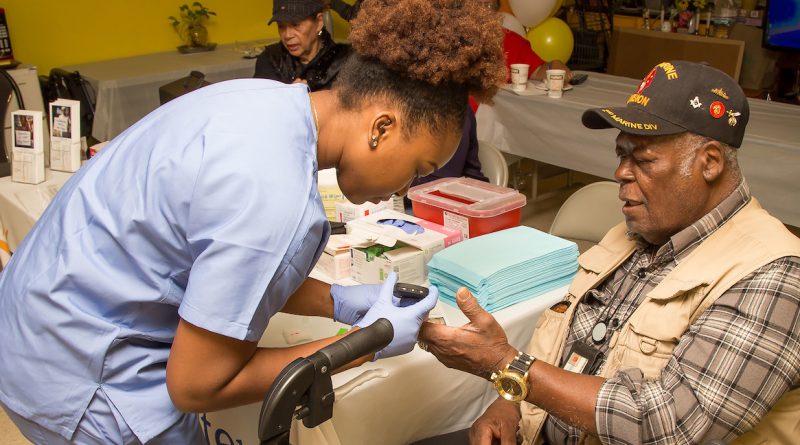Better Than Ever
Nearly 80,000 people age 62 or older live in NYCHA developments. As the anchors of their communities, seniors contribute to the strength and vitality of their neighborhoods. The healthier and more engaged they are, the more they will have to offer. Here are some recommended strategies to help you be the best you can be, whether you are 25 or 85.
Nearly 80,000 people age 62 or older live in NYCHA developments. As the anchors of their communities, seniors contribute to the strength and vitality of their neighborhoods. The healthier and more engaged they are, the more they will have to offer.
The writer Betty Friedan said that “aging is not lost youth but a new stage of opportunity and strength.” Here are some recommended strategies to help you be the best you can be, whether you are 25 or 85.
- Maintain your brain. Find a new hobby or skill to master, like playing an instrument or learning a new sport. Learning something new keeps your brain flexible.
- Stay socially active. Involvement with other people of all ages keeps depression at bay and elevates happiness. Take classes or participate in discussion groups at a senior center (see below) or library. Or consider volunteering in your community. How about joining your development’s resident association or Resident Watch team?
- Be physically active. An activity you enjoy doing every day for 20-30 minutes will keep your body strong.
- Eat well (plenty of fruits, vegetables, and whole grains).
- If you drink alcohol, do so in moderation.
- Don’t smoke.
- Keep up with health screenings, like blood pressure checks, and vaccines, like the flu shot. If you live with a chronic illness, talk to your doctor about how to manage it.
- Manage your medications. Keep a list of your medications, and review it with your doctor, nurse, or pharmacist at every visit. Always take your medications as prescribed. Ask if any medications (or medication combinations) increase your risk of falling.
- Reduce your risk of falls by keeping your bones and muscles strong with physical activity, having your vision checked, and clearing your floors of safety hazards. Make sure they are well lit so you can see where you are going.
Resources for a Good Life
NYCHA partners with a variety of providers throughout the city to connect seniors to life-changing programs.
- Visit one of the 111 senior centers at NYCHA developments to get involved with a range of recreational, health, and cultural activities, services, and resources. The majority of these centers are sponsored by the City’s Department for the Aging (DFTA). They offer free meals, counseling on social services, and assistance with public benefits.
- At five senior centers – Queensbridge, Jefferson, Melrose Mott Haven, Red Hook, and Stapleton – an organization known as OATS (Older Adults Technology Services) teaches seniors classes in computer technology (including Microsoft Office), digital photography, financial management, social media, and health and fitness.
- DFTA’s Grandparent Resource Center helps seniors who are raising young relatives at the 15 NYCHA developments that are the focus of the Mayor’s Action Plan (MAP) for Neighborhood Safety. Through the program, seniors and their caregivers can participate in workshops on community safety, mental health awareness, senior scams, nutrition, falls prevention, and child and elder abuse.
- Henry Street Settlement’s Senior Companion Program matches healthy, older adult volunteers with seniors who need assistance to live independently. Companions help them go shopping or to doctors’ appointments and obtain services such as Access-A-Ride and Meals on Wheels.
- Presbyterian Social Services’ Circle of Care program gives seniors a helping hand with transportation, buying and preparing food, paying bills, getting vital benefits and entitlements, doing household chores, or other daily needs. The program, currently available to residents of Saint Nicholas Houses, Sondra Thomas Apartments, UPACA, and Cassidy-Lafayette Houses, also provides caregivers with guidance, training, and interpretation services.
- The Harlem Health Advocacy Partners program helps residents of King Towers, Lehman Village, and Clinton, Johnson, and Taft Houses improve their health through coaching and referrals. The initiative is a collaboration of the City’s Department of Health and Mental Hygiene, NYCHA, the Community Service Society, and the NYU-CUNY Prevention Research Center.
For more information and resources, visit the Department for the Aging’s website.

